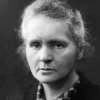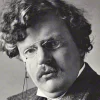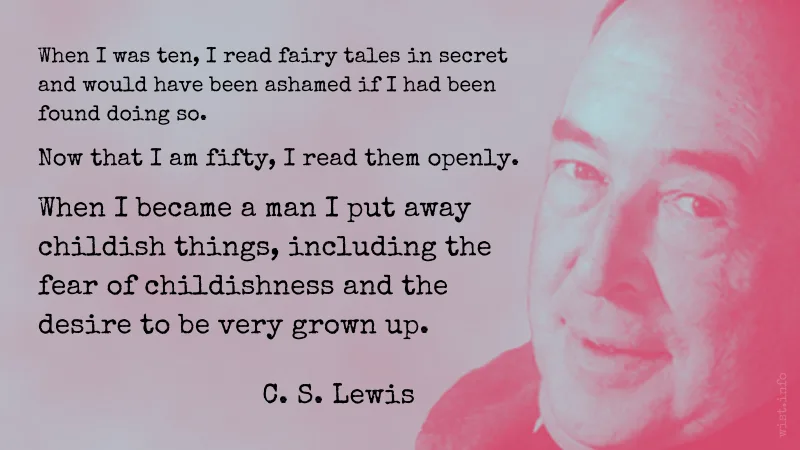I am among those who think that science has great beauty. A scientist in his laboratory is not only a technician: he is also a child placed before natural phenomena which impress him like a fairy tale. We should not allow it to be believed that all scientific progress can be reduced to mechanisms, machines, gearings, even though such machinery also has its beauty.
Marie Curie (1867-1934) Polish-French physicist and chemist [b. Maria Salomea Skłodowska]
“The Future of Culture [L’Avenir de la Culture]” conference, Madrid (1933-05-03/07)
(Source)
One of Curie's last public addresses. As quoted in Eve Curie Labouisse, Madame Curie: A Biography, ch. 24 (1937) [tr. Sheean (1938)].
Alternate translation:I believe that science has great beauty. A scientist int he laboratory is not a mere technician; he is also a child confronting natural phenomena that impress him as though they were fairy tales. We should not allow it to believed that all scientific progress can be reduced to mechanisms, machines, and gearings, even though such machine also has beauty.
[Source]
Quotations about:
fairy tale
Note not all quotations have been tagged, so Search may find additional quotes on this topic.
But it was much earlier even than that when most people forgot that the very oldest stories are, sooner or later, about blood. Later on they took the blood out to make the stories more acceptable to children, or at least to the people who had to read them to children rather than the children themselves (who, on the whole, are quite keen on blood provided it’s being shed by the deserving), and then wondered where the stories went.
In short, there’s simply not
A more congenial spot
For happily-ever-aftering than here
In Camelot.Alan Jay Lerner (1918-1986) American dramatist, lyricist, composer
“Camelot” [Arthur], Camelot(1960; 1967)
(Source)
Based on T.H. White, The Once and Future King (1958).
Isn’t it enough to see that a garden is beautiful without having to believe that there are fairies at the bottom of it too?
Douglas Adams (1952-2001) English author, humourist, screenwriter
The Hitchhiker’s Guide to the Galaxy, ch. 16 [Ford] (1979)
(Source)
EDGAR: Childe Rowland to the dark tower came,
His word was still “Fie, foh, and fum,
I smell the blood of a British man.”William Shakespeare (1564-1616) English dramatist and poet
King Lear, Act 3, sc. 4, l. 195ff (3.4.195-197) (1606)
(Source)
I think there’s a lot of people out there who say we must not have horror in any form, we must not say scary things to children because it will make them evil and disturbed. … That offends me deeply, because the world is a scary and horrifying place, and everyone’s going to get old and die, if they’re that lucky. To set children up to think that everything is sunshine and roses is doing them a great disservice. Children need horror because there are things they don’t understand. It helps them to codify it if it is mythologized, if it’s put into the context of a story, whether the story has a happy ending or not. If it scares them and shows them a little bit of the dark side of the world that is there and always will be, it’s helping them out when they have to face it as adults.
Joss Whedon (b. 1964) American screenwriter, author, producer [Joseph Hill Whedon]
Interview with Michael Silverberg (NPR)
(Source)
Fairy tales are more than true: not because they tell us that dragons exist, but because they tell us that dragons can be beaten.
Neil Gaiman (b. 1960) British author, screenwriter, fabulist
Coraline (2002)
Paraphrase by Gaiman of G. K. Chesterton. Gaiman included it as an epigraph, attributed to Chesterton, but without looking up the exact wording.
The timidity of the child or the savage is entirely reasonable; they are alarmed at this world, because this world is a very alarming place. They dislike being alone because it is verily and indeed an awful idea to be alone. Barbarians fear the unknown for the same reason that Agnostics worship it — because it is a fact. Fairy tales, then, are not responsible for producing in children fear, or any of the shapes of fear; fairy tales do not give the child the idea of the evil or the ugly; that is in the child already, because it is in the world already. Fairy tales do not give the child his first idea of bogey. What fairy tales give the child is his first clear idea of the possible defeat of bogey. The baby has known the dragon intimately ever since he had an imagination. What the fairy tale provides for him is a St. George to kill the dragon.
When I was ten, I read fairy tales in secret and would have been ashamed if I had been found doing so. Now that I am fifty, I read them openly. When I became a man I put away childish things, including the fear of childishness and the desire to be very grown up.
C. S. Lewis (1898-1963) English writer, literary scholar, lay theologian [Clive Staples Lewis]
“On Three Ways of Writing for Children,” lecture, Library Association Bournemouth Conference (29 Apr – 2 May 1952)
(Source)
Reprinted in On Stories (1966). Referencing 1 Corinthians 13:11.











